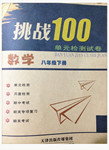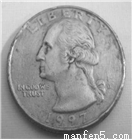题目内容
If anything can be said about recordbreaking globetrotter (环球旅行家) Graham Hughes, it's that— throughout his travels— he's always kept his feet firmly on the ground.

The 33?year?old adventurer, from Liverpool, has become the first person to visit all 201 countries in the world without using a plane.
Hughes used buses, taxis, trains and his own two feet to travel 160,000 miles in exactly 1,426 days — all on a shoestring(资金微薄) of just $100 a week.
He spent four days “crossing open ocean in a leaky (漏的) boat” to reach Cape Verde on the North Atlantic, was jailed for a week in the Congo for being mistaken as a “spy”, and was arrested trying to “sneak (溜;偷偷地做) into” Russia.
And yesterday Graham Hughes trudged (长途跋涉) into Juba, the capital of South Sudan, to end the epic four?year journey that began in his hometown of Liverpool on New Year's Day 2009.
“I love travel, and I guess my reason for doing it was that I wanted to see if this could be done, by one person traveling on a shoestring,” he told the Christian Science Monitor. “I think I also wanted to show that the world is not some big, scary place, but in fact it is full of people who want to help you even if you are a stranger.”
Guinness has now confirmed that Hughes, who filmed the expedition for a documentary and raised money for charity Water Aid, has achieved the world record.
“The main feeling today is just one of intense gratitude to every person around the world who helped me get here, by giving me a lift, letting me stay on their couch, or pointing me in the right direction,” Hughes added.
1.Which of the following is NOT described Graham Hughes?
A. Globetrotter.
B. Adventurer.
C. The first person traveling around the world not using a plane.
D. Scientist.
2.Which of the following is NOT true according to the text?
A. When he traveled on the ocean, his boat was leaking water.
B. He was put into prison because of being considered a spy in the Congo.
C. He was caught in Russia because he stole something.
D. It was in South Sudan that he ended his epic four?year journey.
3.Why did Hughes make the world record that he had achieved into the film — the expedition for a documentary?
A. Because he wanted to be remembered by people all over the world.
B. Because he wanted to raise money for charity Water Aid.
C. Because he only wanted to record his experience.
D. Because he wanted to earn money.
4.What can we learn from the last paragraph?
A. When he traveled all over the world, he got a lot of help from different people.
B. He often sleeps on the coach.
C. He often points the direction for others.
D. He is grateful to the people who have helped him.
 挑战100单元检测试卷系列答案
挑战100单元检测试卷系列答案


 fully. Look at them in the eye.
fully. Look at them in the eye.